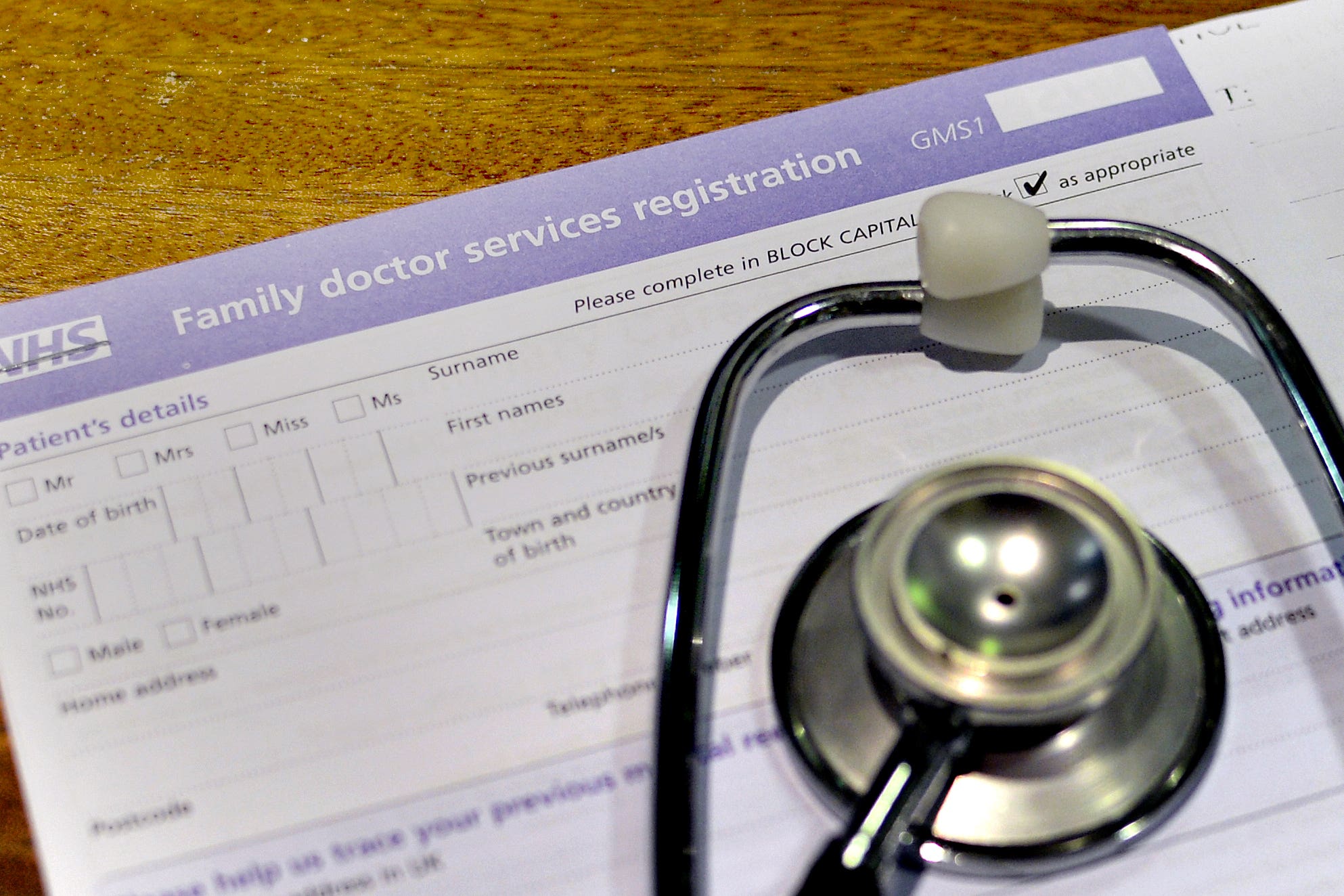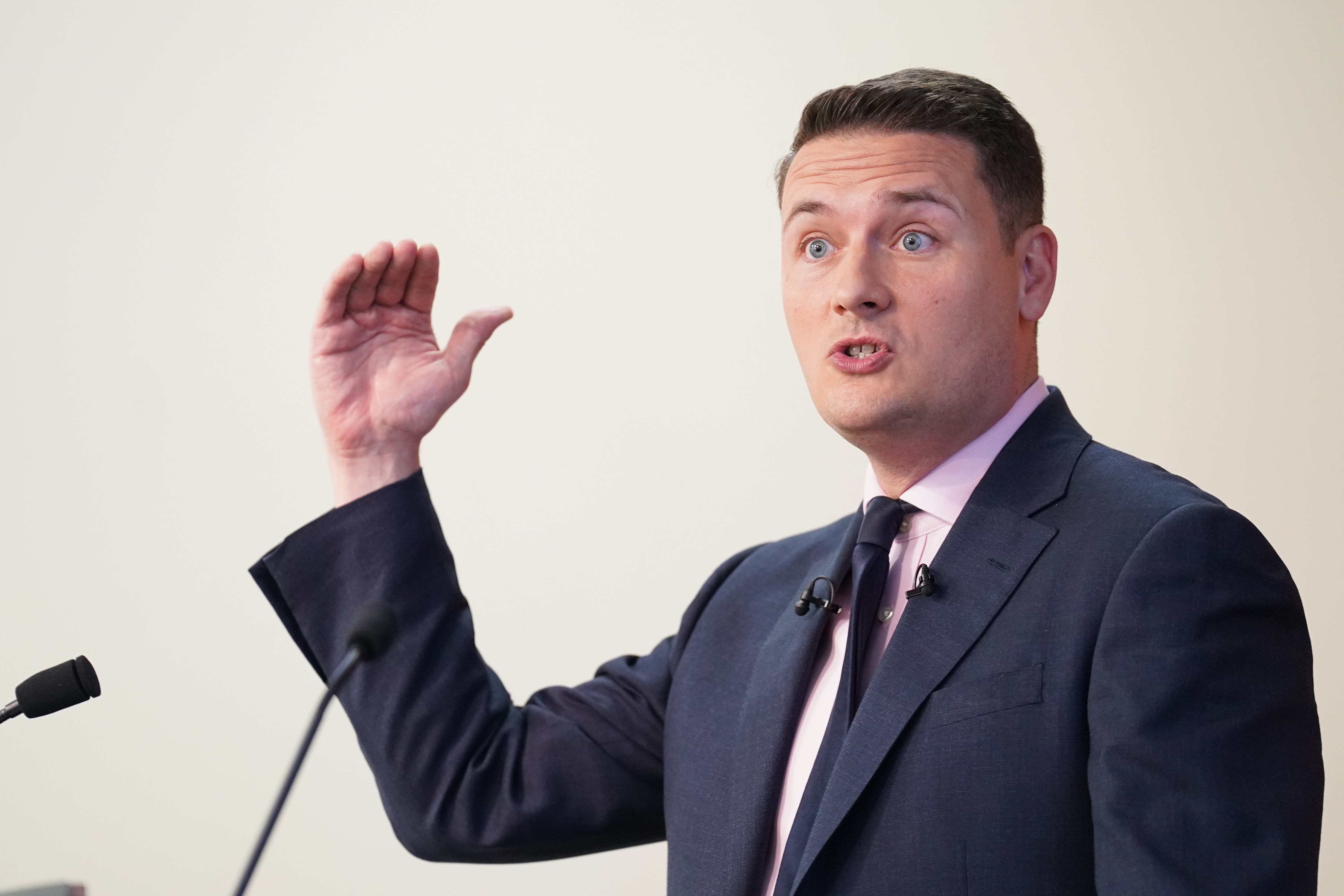GPs could bring NHS to standstill if they vote for “first collective action in 60 years”, BMA warns
BMA is balloting GPs on whether to take first action for decades and starting from Thursday

Your support helps us to tell the story
From reproductive rights to climate change to Big Tech, The Independent is on the ground when the story is developing. Whether it's investigating the financials of Elon Musk's pro-Trump PAC or producing our latest documentary, 'The A Word', which shines a light on the American women fighting for reproductive rights, we know how important it is to parse out the facts from the messaging.
At such a critical moment in US history, we need reporters on the ground. Your donation allows us to keep sending journalists to speak to both sides of the story.
The Independent is trusted by Americans across the entire political spectrum. And unlike many other quality news outlets, we choose not to lock Americans out of our reporting and analysis with paywalls. We believe quality journalism should be available to everyone, paid for by those who can afford it.
Your support makes all the difference.GPs could rapidly bring the NHS to a standstill if they decide to stage their first collective, industrial action in 60 years, the British Medical Association (BMA) has warned.
A ballot of family doctors across England will close on Monday, with potentially months of collective action set to start from Thursday amid a row over the new contract for GP services in England in 2024/25.
After a BMA referendum of nearly 20,000 GPs found 99 per cent of them rejected the new contract - which proposes a funding increase of just 1.9 per cent - the union launched a formal dispute over the issue in April, warning many surgeries will struggle to stay financially viable.
Now GPs stand on the brink of what would mark their first collective action since 1964, when family doctors collectively handed in undated resignations to Harold Wilson’s Labour government, which led to major reforms including the Family Doctor Charter of 1965.
A proportion of GPs staged industrial action in 2012 in protest against increases in pension contributions and a later retirement age for doctors. Estimates suggest that between a fifth and a third of practices took part in the action.
Dr Katie Bramall-Stainer, chair of the BMA’s England GPs committee, said she aspires to talk to the current government about a Family Doctor Charter 2025 – 60 years on from the original.
“We have moved on so much since then, but I think we need to again agree a set of principles if you want the NHS to be free at the point of use, universal to all, funded through central taxation,” Dr Bramall-Stainer said.
“In a free at the point of use service, you have got to have a really effective, emboldened, resourced gatekeeper. And your gatekeeper is the GP.
“The GP model is why the NHS has lasted as long as it has done and when you try and break the GP model, you break the gatekeeper, and when you break the gatekeeper, you break the NHS. I think that is what we’re seeing on a macro level.”

The industrial action would potentially see GPs limit the number of patients they see each day to 25, they could choose to stop performing work they are not formally contracted to do, and could potentially ignore NHS “rationing” restrictions by instead “prescribing whatever is in the patient’s best interest”.
Dr Bramall-Stainer said the action has been designed to be “easy, sustainable and effective”, adding: “We’re not going on strike. This is collective, premeditated, disruptive action. It is industrial action, but the target isn’t patients. The target is NHS England Department of Health.”
She continued: “If it’s done effectively, it’s done collectively and it’s done well, it will bring the NHS to a standstill very quickly, but not for patients – [for] all the NHS admin, the policymakers who have put in place these decisions that aren’t helping patients.”
GPs may also opt out of local data-sharing agreements which are not needed for direct patient care.
But Dr Bramall-Stainer insisted “patients won’t come to harm from this”.

She added: “We don’t want to put patients as piggy in the middle – we live in our communities with our patients, there are no barriers between us. We get a lot of the flak from the failings of the NHS and we agree with our patients and it’s quite exhausting. The last thing we want to do is pitch patients against us.
“I don’t think patients will really notice very much difference at all. And that’s the plan.”
She said the union has “cost-neutral solutions and suggestions that can make a big difference”, including allowing surgeries to use the £1.4bn Additional Roles Reimbursement Scheme to hire new GPs and practice nurses, instead of merely other staff such as physician associates and pharmacists.
Dr Bramall-Stainer had a meeting with the new health secretary Wes Streeting on 18 July and union leaders hope such talks will continue.
Mr Streeting’s first official visit in his new role was to a London GP surgery on 8 July, where he pledged to “bring back the family doctor” and “fix the front door to the NHS”.
A Department of Health and Social Care spokesperson said: “The health and social care secretary has met with the chair of the BMA’s GP committee to discuss their priorities ahead of their ballot closing on 29 July. However, it is important we plan for all contingencies, in every eventuality, to keep patients safe.”
This article was amended on 31 July 2024. It originally referred to the proposed industrial action as being the first in 60 years, but that was inaccurate. A proportion of GPs took part in industrial action in 2012.
Join our commenting forum
Join thought-provoking conversations, follow other Independent readers and see their replies
Comments